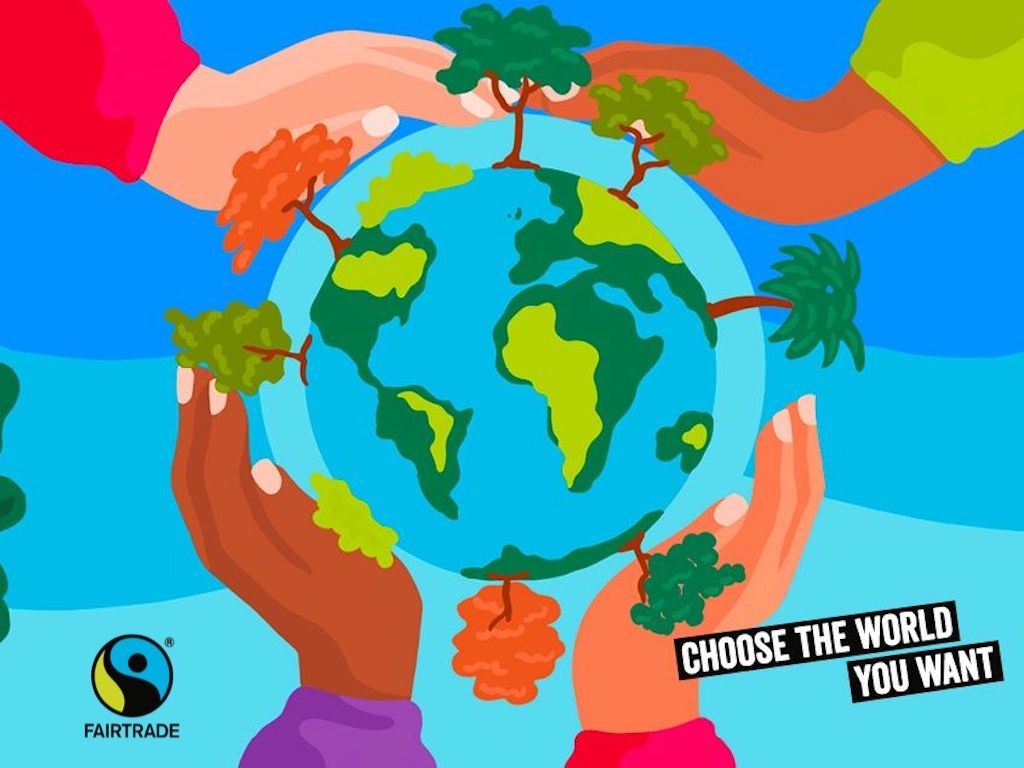3 Mins Read
An upcoming online festival is set to highlight the impact that the climate emergency will have on food supplies and farmers. Hosted by the Fairtrade Foundation and free for all to join, the festival will feature more than 100 virtual events, including panel discussions with experts, activism debates, gardening workshops and even live cooking sessions, all designed to educate and inform people about the climate crisis and what we can do to consume more ethically and sustainably.
Set to kick off on Monday (February 22), Fairtrade Foundation’s first-ever virtual festival Choose the World You Want Festival will centre on the harmful effects that the climate crisis is having, and will continue to have on farmers and the global food system. Running until March 7, the two-week event will feature over 100 workshops, discussions and cooking demonstrations and more – all of which are open for the public to sign up for free, with the option to make a donation to projects helping farmers cope with the impacts of climate change.
The headline event that will take place on the kick-off day is a discussion hosted in partnership with Guardian Live, starring an expert panel including food policy Professor Tim Lang of the City University of London, Marike de Peña, the managing director of Fairtrade banana cooperative Banelino, and jurisconsult and Afrikan Reparations activist Esther Stanford-Xosie. Chaired by environmental journalist Lucy Siegle, the panel will talk about how intensifying unpredictable weather patterns are undermining the livelihoods of farmers.
Farmers and workers in agricultural communities in the Global South…are already feeling the worst effects from unpredictable weather to natural disasters and disease.
Nilufar Verjee, Director of Public Engagement, Fairtrade Foundation
Despite having contributed to the least to the climate crisis, farmers – the majority of whom are in the Global South – are among the world’s most vulnerable populations exposed to natural disasters, hunger, disease and other environmental shocks. The discussion hopes to shed greater light on the need for more investment into mitigation, adaptation and resilience measures to help farmers and empower these communities who grow our favourite foods.
“Farmers and workers in agricultural communities in the Global South…are already feeling the worst effects from unpredictable weather to natural disasters and disease. But without stable incomes, these farmers lack the ability to fight climate change impacts and continue to struggle to meet their immediate needs,” explains Nilufar Verjee, director of public engagement at Fairtrade Foundation.
Other key events that will take place over the course of the festival include a creative activism debate chaired by actress Adjoa Andoh to highlight how we can creatively campaign for change, joined by a number of artists, musicians and illustrators from around the world who are using their work to drive meaningful action.
There is a chain on earth that starts where the producers are. They are the ones who suffer the consequences of climate change, the ones who get the least help, and carry all of the burden. It’s not fair.
Bayardo Betanco, Fairtrade Coffee Farmer, Prodecoop Cooperative
An online quiz on climate change, permaculture Q&A session about creating a sustainable garden, and live cooking demonstrations led by popular chefs and food writers Melissa Hemsley, Rosie Birkett and Zoe Adjonyoh are also on the festival line-up.
Ultimately, organisers of the festival hope that the fortnight-long event will raise greater awareness between the link between trade, poverty and climate change and inform more people about how their choices matter when it comes to the planet and people.
Bayardo Betanco, a Fairtrade coffee farmer at the Prodecoop cooperative in Nicaragua, says that the current global food system remains unfair and believes there is a need for such campaigns to elevate the voices of the people who produce the world’s food.
“There is a chain on earth that starts where the producers are. They are the ones who suffer the consequences of climate change, the ones who get the least help, and carry all of the burden. It’s not fair.”
Lead image courtesy of Fairtrade Foundation.



